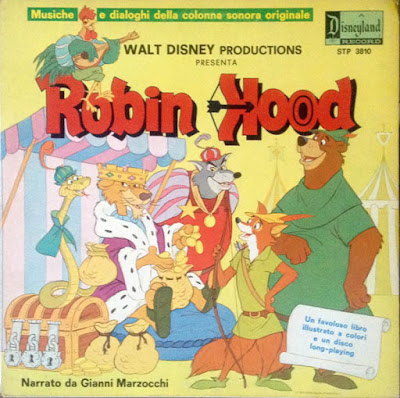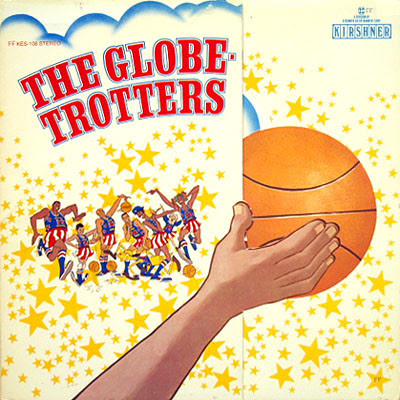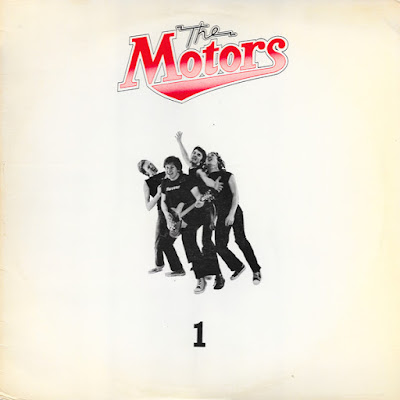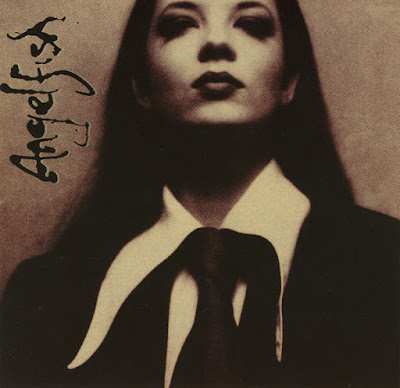“Oh Happy Day” (1968) – Edwin Hawkins Singers * Written (Trad. Arr.) by Edwin R. Hawkins * 45 (1969): “Oh Happy Day” / “Jesus, Lover of My Soul” * LP: Let Us Go Into the House of the Lord * Produced by La Mont Bench * Label: Pavillion
This popular gospel track by the Edwin Hawkins Singers, featuring the lead vocals of Dorothy Morrison, updated an eighteenth century hymn written by Philip Doddridge. Because it was recorded live at the Ephesian Church of God in Christ in Berkeley, California, it has odd-sounding room noise for radio, but it nonetheless reached #4 in the US and #2 in the UK. The record influenced George Harrison, as he confirmed in his book I Me Mine, and his “My Sweet Lord” had a similar chord structure with its strong IIm7 to V chord sequence. This never came up in court, though, when Harrison stood trial for plagiarizing “One Fine Day.” It might have supported an argument that many sources, in fact, are used in creating pop music. It might also have opened discussion on how Hawkins claimed full writer’s credit for the public domain piece (and also its B-side, Charles Wesley’s “Jesus, Lover of My Soul”).
“On and On” (1974) – Gladys Knight and the Pips
“On and On” (1974) – Gladys Knight and the Pips * Written and produced by Curtis Mayfield * 45: “On and On” / “The Makings of You” * LP: Claudine * Label: Buddah
Although the ads billed director John Berry’s Claudine as “a heart and soul comedy,” the film’s sobering depictions of inner city reality overshadow any laughs. Harlem visuals give it added punch, as does the music, written by Curtis Mayfield and performed by Gladys Knight and the Pips. The hit single “On and On” (Billboard #5) explodes in the opening credits as the big screen urban scenes unfold. Here’s a rare situation, though, where a film made a song seem better than it actually was. (It’s usually the other way around.) No one who experiences “On and On” away from the film would rank it with Knight’s or Mayfield’s best work.
“Folks Who Live on the Hill” (1963) – Gloria Lynne
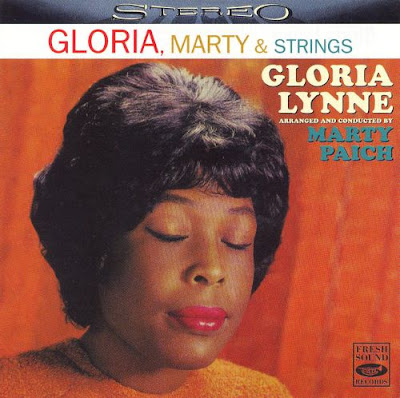
“Folks Who Live on the Hill” (1963) – Gloria Lynne * Written by Jerome Kern and Oscar Hammerstein II * LP: Gloria, Marty and Strings * Produced by Murray Cohen * Arranged by Marty Paich * Label: Everest
Peggy Lee’s 1957 version of this late thirties song (from the movie High, Wide and Handsome) is a classic, but the underappreciated Gloria Lynne sings with enough authority on her 1963 recording to give it definitive status. Marty Paich’s arrangement is a work of sublime beauty, with a French horn intro that likely informed David Rose’s theme for Little House on the Prairie, the long-running ’70s-’80s TV drama depicting the agonies and ecstasies of a pioneer family. Surely the opening sequence of the Ingalls family traveling on a hilltop to their “little house” got Rose thinking about Lynne’s and Paich’s take on a similar subject.
“Urca Urca Tirulero” (1974) – Gianni Marzocchi
“Urca Urca Tirulero” (1974) – Gianni Marzocchi * Written by Roger Miller and Pertita * LP: Walt Disney Productions Presenta Robin Hood * Label: Disneyland Records
The 1973 Disney cartoon version of Robin Hood distinguished itself with American country music star Roger Miller doing the laconic voice and vocals of its rooster narrator. The 1974 Italian dub of the film offered something different, but equally wonderful, with the elegant croon of actor Gianni Marzocchi doing rooster duty. As a late 50s/early 60s Italian teen idol, Marzocchi already gathered some Disney credentials from an appearance with Annette Funicello in a 1962 film called Escapade in Florence. From the mid-sixties onward, Marzocchi shifted gears and devoted himself mostly to the type of voice dubbing he would do for Robin Hood. The opening tune “Urca Urca Tirulero”—the Italian version of Miller’s “Oo-De-Lally”—appeared on a 1974 children’s record and has shown up on a number of reissues, such as the 1996 Italian CD Il Magico Mondo Di Walt Disney. Marzocchi’s version of “Not in Nottingham” (“Non a Nottingham”), which also swoons with special Italian romance and melancholy, has yet to receive the reissue treatment. A whole album of this sort of acoustic material from Marzocchi would have been heavenly; he died of a tumor, alas, at the young age of 56.
“Ain’t No Way” (1968) – Aretha Franklin
“Ain’t No Way” (1968) – Aretha Franklin * Written by Carolyn Franklin * 45: “(Sweet, Sweet Baby) Since You’ve Been Gone” / “Ain’t No Way” * LP: Lady Soul * Produced by Jerry Wexler * Label: Atlantic
This B-side to Franklin’s “(Sweet Sweet Baby) Since You’ve Been Gone” single comes across as a sacred rendering of sexual longing. Written by Aretha’s sister Carolyn, “Ain’t No Way” evokes Book of Genesis patriarchy with the line “I know that a woman’s duty is to help and love a man.” It also contains high notes sung to heaven by Cissy Houston, which the early sixties taught us to associate with death songs.
“Break Away” (1969) – The Beach Boys
“Break Away” (1969) – The Beach Boys * Written by Brian Wilson and Reggie Dunbar * 45: “Breakaway” / “Celebrate the News” * Produced by Brian Wilson and Murry Wilson * Label: Capitol
This 1969 single was written and produced by Brian Wilson and father Murry (as “Reggie Dunbar”), the infamously abusive man whose exile from band business in 1965 gave this later partnership a strange aura. The single was certainly bouncy enough for a higher chart position than #69, where it stalled in the US, but its disappointing performance may also have to do with its potentially confusing coexistence with an ad campaign for the 1969 Pontiac, which used a jingle (written by Steve Karmen) called “Breakaway.” In 1974, the song appeared on the Beach Boys’ nostalgic Endless Summer compilation, where it sounded conspicuously out of place among all the earlier tracks.
“Gravy” (1970) – The Globetrotters
“Gravy” (1970) – The Globetrotters * Written by Rudy Clark, J.R. Bailey, and Ken Williams * 45: “Gravy” / “Cheer Me Up” * LP: The Globetrotters * Produced by Jeff Barry * Label: Kirshner
Cartoon characters usually had corresponding music business obligations in the early ’70s. The animated Globetrotters, who scrapped the “Harlem” from their name during this peak era of theirs in pop cultural prominence, were no exception. They also owed some kind of debt for their conceptual musical careers to Don Kirshner, who had dreamed up the Monkees and the Archies. The Globetrotters’ only album, released on the Kirshner label (with Archies producer Jeff Barry on board), featured a fun gatefold cover with pop-out art. Although Meadowlark Lemon was the only real life Globetrotter to participate on the album by contributing background vocals, it was journeyman vocalist and songwriter J.R. Bailey who sang lead. No Globetrotter singles cracked the Billboard Hot 100.
“Mindrocker” (1967) – Keith Colley
“Mindrocker (demo)” (1967) – Keith Colley * Written by Keith Colley and Linda Colley * LP: Mindrocker * Label: Sonic Past
Although it never charted, the song “Mindrocker,” as recorded by the group Fenwyck, developed a reputation as one of the psychedelic garage rock era’s definitive swirls. It may surprise you, then, that it came to the band courtesy of career songwriter Keith Colley and his wife Linda. (Colley had charted as an artist in 1963 with his song “Enamorado.”) Even more surprising is how self-contained his own demo sounds, giving Fenwyck’s version a run for its money. The track appears on Mindrocker, a compilation of Colley versions of songs he’d also written for the Knickerbockers, Gene Vincent, and more.
“Dancing the Night Away” (1977) – The Motors
“Dancing the Night Away” (1977) – The Motors * Written by Andy McMaster and Gordon Hann * 45: “Dancing the Night Away” (edit) / “Whiskey and Wine” * LP: 1 * Producer: Robert John Lange
The Motors, on “Dancing the Night Away” (produced by “Mutt” Lange), sound like a rock band for the ages. The album version of the track plays twice as long as the edited 45 version, but both have their merits. The album track lets us bliss out on Bram Tchaikovsky and Nick Garvey’s guitars during the extended intro, while the single version trims it off and saves it for us to experience only as a yearning bridge. (The “Dancing the Night Away” 45 also stands out for being a double-sided 1977 killer, with “Whiskey and Wine” on side B.) The song’s lower register guitar octaves in the verses sound like vintage Cheap Trick, whose debut album appeared the same year and who would later cover this song badly. Although the Motors had some future UK hits, they’d never rise to the level of musical authority they demonstrated right out of the gate.
“You Can Love Her” (1994) – Angelfish
“You Can Love Her” (1994) – Angelfish * Written by Holly Vincent * CD: Angelfish * Produced by Chris Frantz and Tina Weymouth * Label: Radioactive
Scottish singer Shirley Manson fronted Angelfish before getting recruited to sing for the astute founders of Garbage. Out of all the other tracks on the Angelfish CD, “You Can Love Her” rises above the nineties’ mountains of scuffed jewel cases with authority bestowed on Manson from Holly Vincent of Holly and the Italians. A listen-through of Vincent’s 1988 demo shows that this Angelfish version – produced by former Talking Heads/Tom Tom Club duo Chris Frantz and Tina Weymouth – stays true to the intended leather-jacket-in-the-rain vibe.



